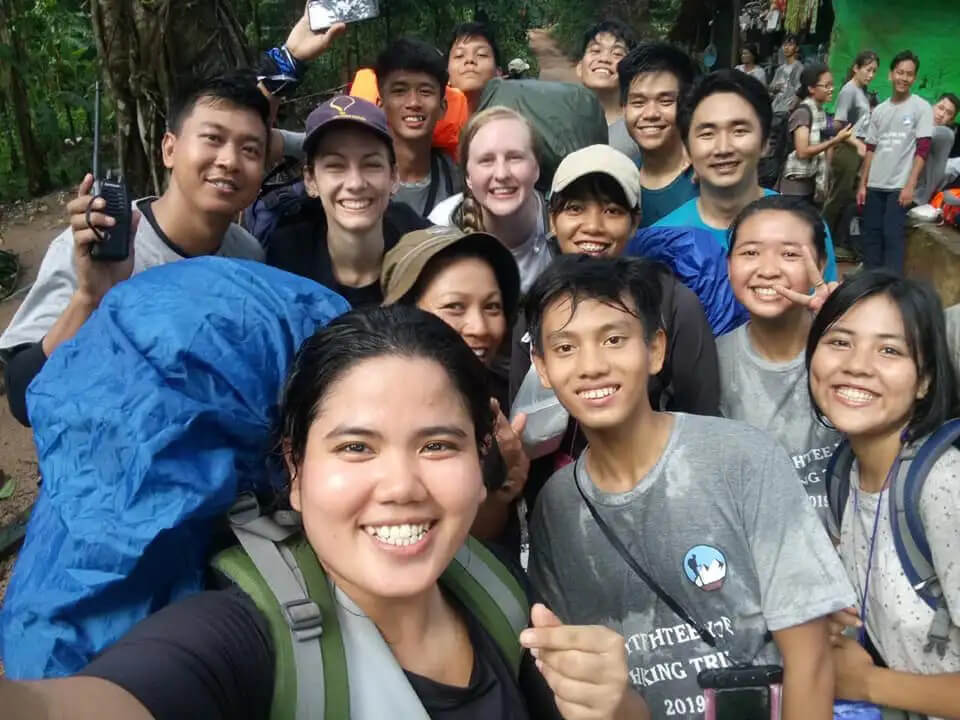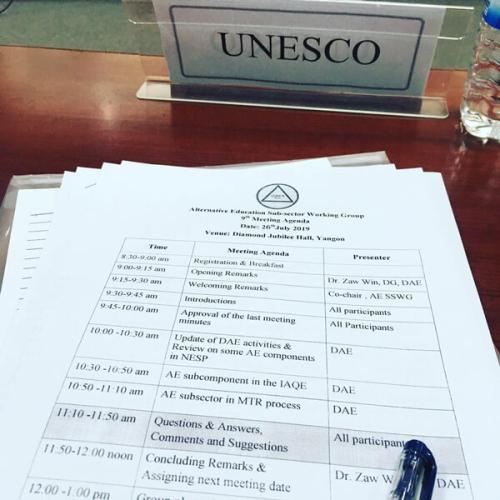Another week another update. Thank you for your continued support and patronage of the GW UNESCO Fellows Blog. I hope our journeys have helped give you a glimpse into UNESCO’s diverse work around the world. It still amazes me to read about the range and scope of projects for which our respective offices are responsible.
Over the last month, I have been fortunate to receive encouragement from my Head of Office to dig into the various areas of interest for UNESCO in Myanmar. Participating in meetings and events with the CapED team has given me opportunities to learn about Technical and Vocational Education and Training (TVET), Alternative Education (AE), Education in Emergencies (EiE) and much more.
I attended the World Youth Skills Day competition, held by the Yangon Government Technical Institute. There, young people from across the country showcased their skills acquired at TVET institutions through projects aimed to address critical issues facing Myanmar. The Government of Myanmar is working to equipping youth with 21st-Century skills that will be essential in building a more sustainable future for the country, reforming the TVET sector is a key component in this endeavor.
Within the AE sub-sector UNESCO Myanmar doesn’t specifically play a role, however UNESCO Bangkok, as the Mekong Cluster Office representative, does get involved and the CapED team is asked to attend Ministry meetings from time to time. I was able to sit in on the 9th Alternative Education Sub-Sector Working Group along with ministry officials and education development partners. Alternative Education is particularly important in countries where children lack access to tradition, formal education due to obstacles such as poverty or armed conflict.
I also furiously took meeting minutes at the Education Development Partners Coordination Group (EDPCG) meeting at the end of the month. Discussions revolved around the Inclusive Access and Quality Education project, the state of EiE in the country, and the next meeting of the Education & TVET Sector Coordinating Group (ETVSCG), among other topics. Observing these various functions has helped me appreciate better the roles of different stakeholders at the intersection of education and development in Myanmar.
On Fridays, I started heading to the Center of Excellence for Business Skills Development, managed by UNESCO in collaboration with the Yangon University of Economics. There I assist another UNESCO fellow in teaching English classes with a business focus. Last week we worked on making appointments using both formal and informal language. This week we will go over email correspondence.
Outside of UNESCO, I had the chance to travel to one of Myanmar’s famous holy sites, Kyiakthiyo Pagoda or Golden Rock Pagoda. I joined a group of my colleagues and Yangon University students in hiking 12 miles to a small pagoda that sits atop a gold-painted bolder sitting precariously over a cliff. The two-day trek was a great way to escape the hustle and bustle of the city and recharge my batteries.
While many of the UNESCO Fellows are wrapping up their time abroad and preparing for a final year of graduate school, I am excited to have four months left in this position still. Over the remaining months, I can continue posting snippets of my experience for those who are interested.
Stephanie Roach is a Master’s candidate in Global Communication with a focus on Public Diplomacy and China at the George Washington University’s Elliott School of International Affairs.










